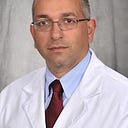Treatment of COVID-19 “Long Haul” Syndrome: Cyclosporine May Be An Optimal Drug Therapy.
Symptomatic COVID-19 disease is caused by hyper-activation of two main subsets of cells in the immune system: T-cells and Macrophages. Of course, other cell types are also involved — but these two cell types seems to be overtly triggered in people who become ill.
As the pandemic has matured, it is clear that a subset of patients with symptomatic disease continue to have lingering symptoms that range from inconvenient to debilitating — lasting for months. Such patients are the so-called “Long Haulers”. Many of these folks have been healthy and well prior to developing COVID-19.
From a disease perspective, it’s useful to think about the damaging long term effects of COVID-19 disease in “Long Haul” patients in two broad categories:
- Permanent Damage: For example when a COVID-19 patient develops brain damage from a stroke, or a heart attack from blood clots to the heart, or permanent lung damage from inflammation or a pulmonary embolus.
- Persistent/Recurrent Lingering symptoms: This aspect of the disease is what many “Long Hauler” suffer from. Symptoms could range from waxing and waning joint and muscle aches, to hair loss, to recurrent headaches, to recurrent rashes, to GI symptoms, to chest pain or discomfort, to vasculitis and mal-perfusion syndromes, to chills, low grade fevers, to neurological symptoms of numbness, tingling and neuropathic pain and brain fog — among a constellation of other symptoms.
Unfortunately, the Permanent damage can only be managed with rehabilitation care.
But, the persistent and recurrent lingering symptoms in COVID-19 “Long Hauler” is highly likely to be due to a persisting level of activation on the part of the immune cells that were hyper-activated in the acute phase of the disease.
In other words, it’s a reasonable clinical hypothesis that the lingering symptoms experienced by the “Long Haulers” is really due to the dominant immune system players in COVID-9 disease (i.e., T-cells and macrophages) never returning to a resting state.
It stands to reason, therefore, that in patients who are no longer actively infected with SARS-CoV-2, but who are experiencing the “Long Haul” syndrome, inhibiting the activation of T-cells and Macrophages would halt their recurrent symptoms.
Fortunately, one of the most established and inexpensive generic drugs in our immunomodulatory arsenal is capable of doing just that — inhibiting activation of T-cells and Macrophages. The drug cyclosporine, is commonly used to treat a variety of other autoimmune and hyperimmune diseases caused by hyper-activation of T-cell and Macrophages.
It is my best clinical judgement that transient use of this drug in COVID-19 “Long Hauler” patients will be safe in appropriately selected patients — as it is in patients suffering from a variety of other hyperimmune disorders.
Additionally, I anticipate that if the lingering recurrent symptoms experienced by the “Long Haulers” is due to a persistent and unremitting level of T-cell and Macrophage activation, use of cyclosporine will put the disease into remission.
Unfortunately this drug is a generic — so not many corporate financial interests are advocating for its rapid testing in COVID-19 disease. Certainly, since March 2020 I have been doing all I can to alert the NIH, help initiate clinical trials of this drug for inpatients and even use it off-label in acute disease.
Additionally, the federal government’s overt focus on vaccines and more monied drugs has almost entirely sidelined rational generic drugs line cyclosporine from rapid large scale clinical testing.
But this omission of cyclosporine, among several other rational generic drugs, is a national strategic blunder by NIH.
Here, I am writing to inform any patients with “Long Haul” COVID-19 syndrome that I am willing to discuss, with them, the potential off-label use of cyclosporine in an attempt to put their symptoms into remission.
If the postulation that T-cells and Macrophage in “Long Haul” patients linger in a non-resting state over their resting baseline is correct, use of cyclosporine is likely to put the syndrome into remission — as it does with other hyperimmune disease flares caused by these same immune cells.
If you are interested in a discussion with me regarding off-label use of cyclosporine for your symptoms, please contact me at Hooman@patientrights.org.
Sincerely,
Hooman Noorchashm MD, PhD.
